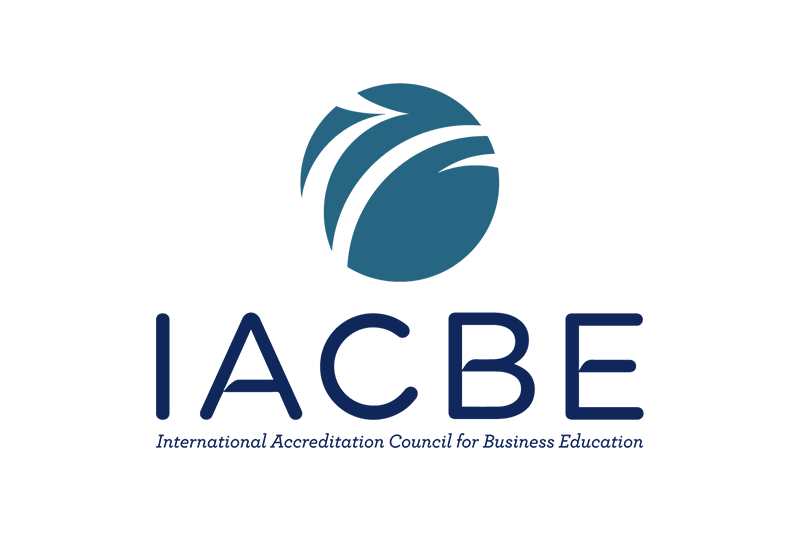
Associate of Science in Business
Online or Hybrid
Flexible options
Finish in 20 months
Average completion time
Year-round enrollment
Our admissions team reviews applications year-round

Take the first step in your National University Journey

Associate of Science in Business
Degree:
Associate of Science in Business Degree
Application:
$0 application fee. No essays/exams.
No matter the field, the product, or the size of the company, managing people in a business setting requires perceptiveness, motivation, and training. If you’re intrigued by the notion of moving into managerial levels in the business world, the Associate of Science in Business is a natural place to get started. Designed to prepare you for entry-level management positions, the coursework is focused on your success; degree completion provides a transition path to a Bachelor of Business Administration degree.
In the Associate of Science in Business online program, you’ll engage in courses in general business, accounting, economics, legal studies, management, and marketing to gain a broad understanding of the business world. You’ll also pursue two pre-requisites as part of general education requirements: introductory business mathematics and Internet literacy. With these in hand you’ll have a fundamental understanding of basic business management and how it applies to planning and implementing an organization’s strategic behavior.
Degree Requirements
To receive an Associate of Science in Business degree, students must complete at least 90 quarter units consisting of all courses as articulated below along with the required minimum 37.5 units of the Associate of Science General Education. In the absence of transfer credit, students may need to take additional general electives to satisfy total units for the degree. Refer to the section on undergraduate admission procedures for specific information regarding application and evaluation.
National University awards credit in quarter units, with each academic year divided into four 12-week quarters.
Each quarter is made up of three 4-week classes, with one class per month. Under the current policy, 4.5 units of credit are awarded for courses.
Prerequisites for the Major
3 Courses
Academic Information Literacy*
4.5 Quarter Units
Prerequisite: ENG 102
A cross-disciplinary course that teaches effective report and research paper writing through the use of key computer technologies. Topics include library and Internet research; information organization, evaluation, and synthesis; MLA and APA style formats; and the use of document-production, image-editing, and presentation software.
Intro to Quantitative Methods*
4.5 Quarter Units
Key mathematical and statistical concepts useful for understanding business problems and making informed decisions with the right tools are introduced. Concepts relate to numbers, formulas, linear equation models and descriptive statistics. Applications focus on personal decisions and decisions within businesses in the areas of finance, discounts, pricing, interest rates, loans, insurance, investment, payroll and taxes. Microsoft Excel is the software used in this class. MNS 205 and MTH 210 are the primary quantitative courses required for MNS 407. Students who have taken college algebra or calculus (MTH 220) are exempt from this course.
MNS 205 must be taken if students do not have transfer credits for MNS 205, MTH 216A & MTH 216B, or MTH 220.
Or the following 2
College Algebra I
3.0 Quarter Units
Prerequisite: MTH 12A and MTH 12B, or Accuplacer test placement evaluation
Examines higher degree polynomials, rational, exponential and logarithmic functions, trigonometry and matrix algebra needed for more specialized study in mathematics, computer science, engineering and other related fields. Computer and/or graphing calculator use is highly recommended.
College Algebra II
3.0 Quarter Units
Prerequisite: MTH 216A
The second term of a comprehensive two-term treatment of Algebra and Trigonometry; this course is a continuation of MTH 216A. Topics include: Trigonometric Functions, Analytic Trigonometry and Application, Matrix Algebra, Systems of Linear and Non-Linear Equations and Inequalities, and Applied Problems. A graphing calculator may be required.
Or
Calculus I
4.5 Quarter Units
Prerequisite: ENG 102; MTH 216B, or Accuplacer test placement
(Cross listed and equivalent to CSC208) An introduction to limits and continuity. Examines differentiation and integration concepts with applications to related rates, curve sketching, engineering optimization problems and business applications. Students may not receive credit for both MTH220 and CSC208.
Probability and Statistics
4.5 Quarter Units
Prerequisite: MTH 12A and MTH 12B, or Accuplacer test placement evaluation
An introduction to statistics and probability theory. Covers simple probability distributions, conditional probability (Bayes Rule), independence, expected value, binomial distributions, the Central Limit Theorem, hypothesis testing. Assignments may utilize the MiniTab software, or text-accompanying courseware. Calculator with statistical functions is required.
*May be used to meet General Education requirements
Requirements for the Major
Foundation Courses
4 Courses
Principles of Microeconomics
4.5 Quarter Units
In this course, students will study the price system, market structures, and consumer theory. Topics covered include supply and demand, price controls, public policy, the theory of the firm, cost and revenue concepts, forms of competition, elasticity, and efficient resource allocation, among others.
Principles of Macroeconomics
4.5 Quarter Units
This course provides an examination of aggregate economic activity. It includes a study of aggregate supply and demand, the monetary and banking systems, aggregate economic accounting, inflation, unemployment, the business cycle, macroeconomic policy, and economic progress and stability, among other things.
Financial Accounting Funds.
4.5 Quarter Units
A survey of basic accounting theory and the application of accounting principles, this course includes the recording and summarization of business transactions in the form of financial statements under the rules of generally accepted accounting principles. (GAAP). It is designed for students who have little or no prior knowledge of financial accounting, this course corresponds to Principles of Accounting I at other colleges.
Managerial Accounting Funds.
4.5 Quarter Units
Prerequisite: ACC 201
This course is an overview of the use of financial accounting and cost accounting data for the design and preparation of reports to aid management in organizing, directing, controlling, and decision-making functions. The topics include the fundamentals of cost accounting, budgeting and responsibility accounting for cost and profit centers.
Core Courses
4 Courses
Legal Aspects of Business I
4.5 Quarter Units
A survey of contracts, sales, agencies, personal property, commercial paper and associated topics. Emphasizes prevention of litigation and liability arising from business operations.
Marketing Fundamentals
4.5 Quarter Units
This course is the introduction to contemporary marketing theory and practice in both the local and global marketplace. Basic concepts of marketing are examined with an emphasis on marketing positioning, segmentation and targeting as well as product development and distribution.
Business Finance
4.5 Quarter Units
Prerequisite: ACC 201
This course is a survey of the basic principles and concepts used in the financial management of a business enterprise addressed from both theoretical and practical standpoints. Topics include money and capital markets, financial management of working capital, capital budgeting and fixed asset management, cost of capital, and short-term and long-term financing by means of debt and equity capital.
Prin. of Mgmt & Organizations
4.5 Quarter Units
Introduction to the roles of managers and the vision, mission and goals of organizations. Investigates management theories and explores the four primary functions of managers: Planning, Organizing, Leading and Controlling. Covers issues related to human resource management, organizational structure and behavior, creative problem solving, effective communication, and the management of teams, change and innovations.
Career Outlook
Data Source: The career outcomes data presented is sourced from Lightcast, which provides insights based on real-time job postings, public datasets, and analytics. Lightcast derives its data from sources such as the Bureau of Labor Statistics (BLS), the Quarterly Census of Employment and Wages (QCEW), and the Occupational Employment Statistics (OES). While accurate and reliable, this data reflects general labor market trends and may not represent individual outcomes or specific local conditions. For more details on Lightcast’s methodology, visit their Data Overview.
Here are some careers this degree could prepare you for:
Please select the state you will work in to view job data in your area
- Top Jobs in this field
- Median Salary
- Job Openings
- Transportation and Storage Managers
-
$97,888
avg. salary (USA) -
19,112
job openings (past yr.) past year
ALl of USAMost Desired Skills
- Warehousing
- Forklift Truck
- Inventory Management
- Warehouse Operations
- Project Management
- Supply Chain
- Continuous Improvement Process
ALl of USATop Companies Hiring
- Lowe's
- Amazon
- Target
- Restaurant Depot
- US Foods Holding
- Menards
- Ryder
- Social and Community Service Managers
-
$76,025
avg. salary (USA) -
20,398
job openings (past yr.) past year
ALl of USAMost Desired Skills
- Social Work
- Human Services
- Psychology
- Marketing
- Case Management
- Project Management
- Mental Health
ALl of USATop Companies Hiring
- YMCA
- Homesafe Alliance
- Oak Street Health
- Sodexo
- Commonwealth Of Pennsylvania
- American Red Cross
- HCA Healthcare
Program Learning Outcomes
Learn the key skills to help you excel in your field of study.
- Describe the types of business organizations and their basic functions.
- Describe the legal structure of different types of business organizations such as sole proprietorship, partnership and corporation.
- Explain the functions of basic management relating to planning and implementing an organization’s strategic behavior.
- Explain the basic accounting, finance, and management functions of business organizations.
- Explain the role of marketing in business.
- Describe the legal and ethical issues surrounding the business community.

Admissions
Transfer Students Welcome
Enrolling in a university is a big decision. That’s why our dedicated admissions team is here to guide you through the admissions process and help you find the right program for you and your career goals.
To that end, we’ve simplified and streamlined our application process, so you can get enrolled in your program right away. Because we accept and review applications year round, you can begin class as soon as next month, depending on your program and location of choice.
Learn more about undergraduate, graduate, military, and international student admissions, plus admissions information for transfer students. You can also learn more about our tuition rates and financial aid opportunities.
To speak with our admissions team, call (855) 355-6288 or request information and an advisor will contact you shortly. If you’re ready to apply, simply start your application today.

Scholarships and Financial Aid
National University is dedicated to making higher education affordable, as well as accessible. Through NU scholarship offerings, eligible students are able to reduce the financial burden of college, start classes sooner, and finish their programs faster while focusing on achieving their goals.
Accreditations

The Western Association of Schools and Colleges (WASC) accredits public and private schools, colleges, and universities in the U.S.


Why National University?
We’re proud to be a Veteran-founded, San Diego-based nonprofit. Since 1971, our mission has been to provide accessible, achievable higher education to adult learners.
Today, we educate students from across the U.S. and around the globe, with over 245,000 alumni worldwide.

“National University has impacted my career. You can immediately apply what you learn in class to your business.”
Francisco R.,
Class of 2016
What makes a degree
with National University unique?
Free Tutoring Sessions
Access personalized tutoring sessions at no cost — empowering your learning.
Online
Flexibility meets quality education with our online learning option.
24/7 Support
Get assistance anytime, anywhere with our round-the-clock support services.
Military Friendly
Committed to serving those who serve — diverse resources and support for veterans and family. Military and Veteran Admissions.
Mentoring Network
Individual student and alumni career guidance, professional development opportunities, and customized career support.
Transfer Students Welcome
NU makes it easy to get your degree, even if you started it with another university. Learn more about transferring to NU.
Accelerate Your Career With NU
At National University, you’re part of a family. As a student, you’ll have the support of staff, faculty members, students, and alumni who will be there with you every step of the way, cheering you on as you pursue your goals.
Our network of 245,000 alumni is a large global community that provides our graduates with the professional connections to get a leg up in your new career.

Additional Resources
Program Disclosure
Successful completion and attainment of National University degrees do not lead to automatic or immediate licensure, employment, or certification in any state/country. The University cannot guarantee that any professional organization or business will accept a graduate’s application to sit for any certification, licensure, or related exam for the purpose of professional certification.
Program availability varies by state. Many disciplines, professions, and jobs require disclosure of an individual’s criminal history, and a variety of states require background checks to apply to, or be eligible for, certain certificates, registrations, and licenses. Existence of a criminal history may also subject an individual to denial of an initial application for a certificate, registration, or license and/or result in the revocation or suspension of an existing certificate, registration, or license. Requirements can vary by state, occupation, and/or licensing authority.
NU graduates will be subject to additional requirements on a program, certification/licensure, employment, and state-by-state basis that can include one or more of the following items: internships, practicum experience, additional coursework, exams, tests, drug testing, earning an additional degree, and/or other training/education requirements.
All prospective students are advised to review employment, certification, and/or licensure requirements in their state, and to contact the certification/licensing body of the state and/or country where they intend to obtain certification/licensure to verify that these courses/programs qualify in that state/country, prior to enrolling. Prospective students are also advised to regularly review the state’s/country’s policies and procedures relating to certification/licensure, as those policies are subject to change.
National University degrees do not guarantee employment or salary of any kind. Prospective students are strongly encouraged to review desired job positions to review degrees, education, and/or training required to apply for desired positions. Prospective students should monitor these positions as requirements, salary, and other relevant factors can change over time.
Back to top